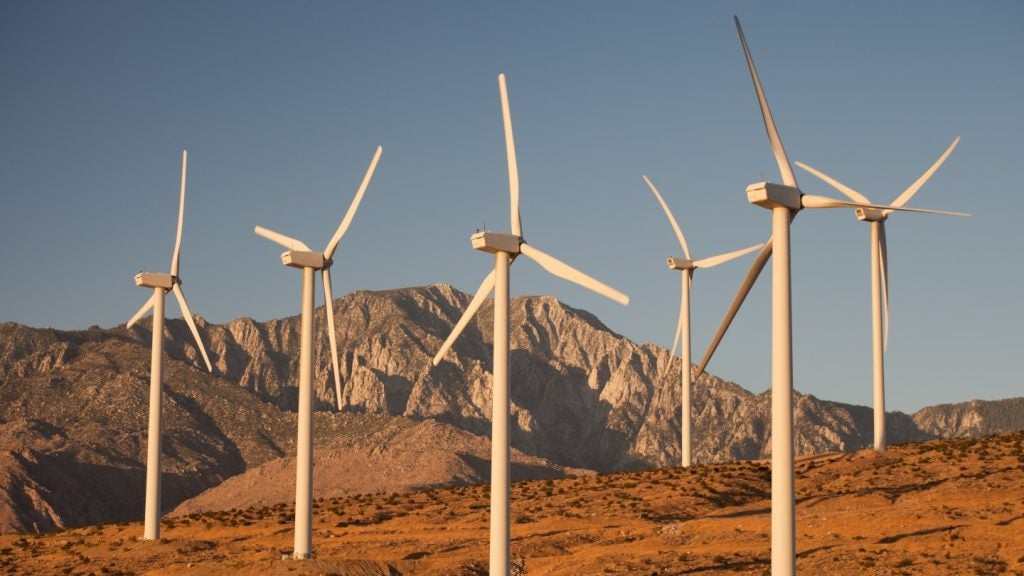
In 1990, the UK electricity network was privatised, allowing households to choose suppliers. Nearly three decades later, the impact of this energy ‘democratisation’ is finally being felt, as more than 60 smaller rivals continue to slowly erode the market share of the UK’s ‘Big Six’ energy companies.
British Gas, EDF, E.ON, Npower, Scottish Power and SSE still supply around 85% of gas and electricity in Britain, but their grip is loosening. According to market analyst GlobalData, the Big Six’s share of the UK market fell to a record low of 78% at the end of 2017, compared with 85% a year earlier.
Ofgem reports that, of the 5.1 million consumers who switched electricity supplier last year, more than a third ditched the Big Six in favour of a challenger firm. In December 2017, small and medium-sized suppliers were supplying 21% of consumers with electricity, compared with just 4.7% in 2013.
Against this backdrop, network operators are looking for alternatives to costly upgrades by paying customers to reduce consumption at times of high demand, a strategy known as demand side response (DSR).
Put simply, the DSR model encourages consumers to balance supply and demand by modifying their consumption patterns through methods such as education and financial incentives. Many businesses already receive payments for providing DSR, but to date there have been relatively few trials.
How well do you really know your competitors?
Access the most comprehensive Company Profiles on the market, powered by GlobalData. Save hours of research. Gain competitive edge.

Thank you!
Your download email will arrive shortly
Not ready to buy yet? Download a free sample
We are confident about the unique quality of our Company Profiles. However, we want you to make the most beneficial decision for your business, so we offer a free sample that you can download by submitting the below form
By GlobalDataEnter Northern Powergrid (NP), which distributes electricity to 3.9 million homes and businesses in the North East, Yorkshire and northern Lincolnshire. The company has launched a three-year trial to illustrate how mobile games can incentivise households to reduce consumption at times of high demand.
“Household electricity use will grow significantly as electric vehicles and heat pumps become mainstream, increasing demand on the network,” says Andrew Webster, NP innovation project manager. “Mobile games offer a fun solution to help manage this demand, rewarding our customers for reducing their consumption at peak periods.”
Power to the people: using mobile games to engage consumers
NP collaborated with Newcastle University and gamification experts GenGame to develop the mobile app, in which 2,000 Northern Powergrid customers in the North East are rewarded for turning off washing machines, televisions, lights and other home devices. The more they reduce their peak power consumption, the more points they earn, increasing their chance to win cash prizes online.
“Pausing your washing machine is only worth around 10p, which isn’t going to change customers’ behaviour,” says Stephane Lee-Favier, CEO of GenGame. “However, if you aggregate lots of small actions into one pot and create a £100 monthly prize it becomes much more interesting.”
Players recruited via Facebook from NP’s customer base were given instructions on how to install the free app, which enables them to monitor their consumption in real-time on their smartphone.
With £350 of cash prizes available each month, players reduce their electricity consumption by an average of 11%. Although the average is 305W, some cut as much as 4.9kW, turning off appliances such as electric vehicles (EVs), caravans, hot tubs and tropical fish tank heaters for short periods.

NP hopes to generate insights into consumer behaviour at a time when energy firms are planning how best to manage demand from the rapid uptake of EVs. Average household daytime consumption is around 0.5kW, but charging a typical electric vehicle can require between 7-10kW.
“If we see an increase in electric vehicles in one area we could just run a GenGame and reward people for charging their car when there is spare capacity on the network,” explains Webster.
“As long as the incentive costs less than upgrading the local network, we have a winner.
“We are working with customers in the way they want and we now have more than 2,000 people signed up and active as flexibility providers. This is a much more dynamic approach for a more dynamic world. It creates a personal connection which we could also explore for other purposes such as fault reporting and energy saving advice.”
Consumer engagement: the GenBlast game explained
The developers are monitoring user behaviour during the trial and have made around 20 updates to the app to optimise performance. DSR happens infrequently, so keeping users interested and engaged when there were only two or three GenGames a week proved challenging.
The solution was to develop GenBlast, a game in which people can play at any time to win “power-up” points. GenBlast gives players suggestions about how to reduce energy consumption and keep power low so they can win more.
Players can also use the power-up points they win to improve their performance in GenGame, thus earning more points to enter for prizes.
Through behavioural analysis, developers also learned that by placing ads on Thursday and sending equipment by first class post to arrive on Saturday, they could increase the number of people setting up GenBlast from 35% to 75%.
According to NP, these and other improvements have cut the cost of recruiting customers by around 90% to a couple of pounds per person. The company also claims that, with the chance to win up to £350 per month, the GenGame only cost 44p per player to take part, around 20 times cheaper than similar, non-gamified projects
Vehicle-to-grid: using EVs to support the UK grid
As the UK continues its transition to a low-carbon economy, its electricity system is becoming more decentralised and increasingly reliant on intermittent sources of generation. As a result, traditional methods of balancing the system and controlling system frequency are now viewed as inadequate.
GenGame and GenBlast are the latest examples of how disruptive mobile technology is being used to encourage tech-savvy consumers to modify their consumption habits, engage with DSR and solve network issues by creating domestic flexibility.
Using cash prizes may not be the most sophisticated way to switch power customers on to DSR, but in a hyper-digitalised world where competition for consumers’ attention grows fiercer by the day, such strategies increasingly make sense both financially and in terms of engagement.
The lessons of GenGame are now being used in a follow-up GenDrive project, which will explore how mobile games can incentivise electric car drivers to use their vehicles to support the UK energy grid.
Northern Powergrid, Newcastle University and GenGame are teaming up with green energy firm Ecotricity and energy monitoring specialists EnAppSys in the £400,000 project, which is part of the Vehicle-to-Grid (V2G) competition, funded by the Office for Low Emission Vehicles (OLEV) and the Department for Business, Energy and Industrial Strategy (BEIS), in partnership with Innovate UK.
In the V2G system, plug-in electric vehicles such as battery electric cars (BEV) and plug-in hybrids (PHEV) return electricity to the power grid with consent from their users, usually in return for a financial reward or benefit.
Such schemes not only raise awareness among consumers; they also send a message to the Big Six that the way energy companies and customers are engaging with each other and their own consumption is changing – and that the industry must keep up if they wish to maintain that precious market share.







